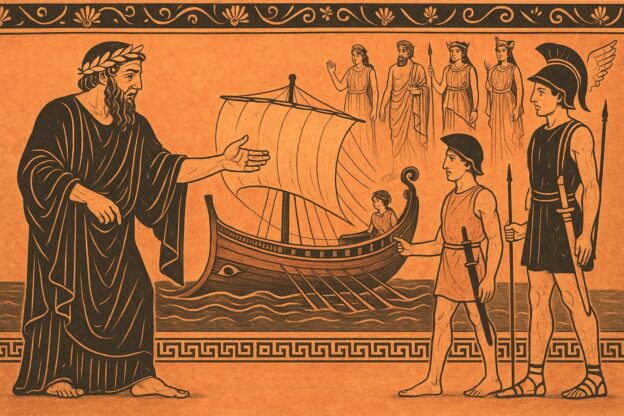“Such as your thoughts and ordinary reflections are,’ Marcus Aurelius says, ‘such will your mind be in time.’ Every page of the book shows that he knew thought would surely lead to action. He trains his soul in right principles so that when the time comes, it may be guided by them. To wait until the emergency is to be too late.”
Excerpt From
Meditations: Modern English Edition
Marcus Aurelius
Though there are a myriad of prescriptions of the ways in which to conduct or interpret one’s life – spanning the gap of philosophy (Stoicism and Epicureanism) and religion (pantheism and monotheism) – the only one of irrefutable logic and science to my thinking is that of one’s private persuasion and direction. I say this not to devote myself inwardly or narrowly – nor to deny the quality of other scopes beyond the individual – but to acknowledge instead that in the conclusion, side-stepping the debates which have for centuries surrounded both Western and Eastern thought, it is upon our inner adjudication that we rely for action. Qualifying this deduction or intuition is the synthesis of valuable capital:
“Whenever you want to feel happy, think about and reflect on the good qualities and special traits you’ve noticed in those around you. For example, observe the hard work of one person, the modesty of another, the generosity of someone else, and so on. Nothing will make you happier than seeing these different virtues in the people you interact with, especially when you notice them all at once. So, make sure to keep these observations in mind.”
Idem
Yet even with the addition of that consideration we are inevitably piloted by our personal decisions. There are all manner of ways in which to translate whatever one senses. Merely looking out the window from my desk, I am overtaken by the magnificence of Nature – the unimaginable way in which a tree grows or a bird flies or the river meanders. Nor does this mawkish reflection proscribe the less than charitable signposts erected for my future travel. But in none of them is there more volatile argument than what surfaces within me. Perhaps it is that I have an abhorrence of categorical outlines; or, maybe as a corollary of my legal education I am open to to the sometimes forbidding device of argument. I am as well persuaded to abandon the substance of my training in logic – whether deductive, inductive or a leap of faith. I am convinced by neither the despondency of Sartre (“Huis Clos“) nor the infantilism of Camus (“Moi, je suis le centre du monde“).
It is irrelevant whether one choses to accede to his soul’s instruction. The option, even if coloured by the design of heraldry and the probity of elucidation, is inescapable. The texture of our behaviour may be altered in appearance but never will the limits of one’s mind be refashioned.
So where does this leave me? Am I sanctioned by my barriers? Does my mind constitute an obstacle to learning and improvement? Once again the elements of philosophy and religion are no more than tinctures or dyes to my thoughts. Or am I, in my arrogance and ignorance, merely a wicked heathen or disputant?
Again, I say, the conclusion is definitive; namely, the Universe is ultimately personal.
